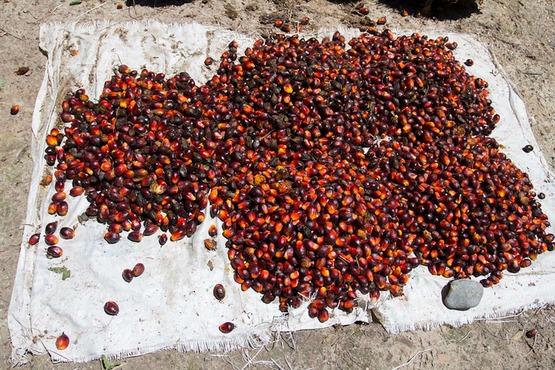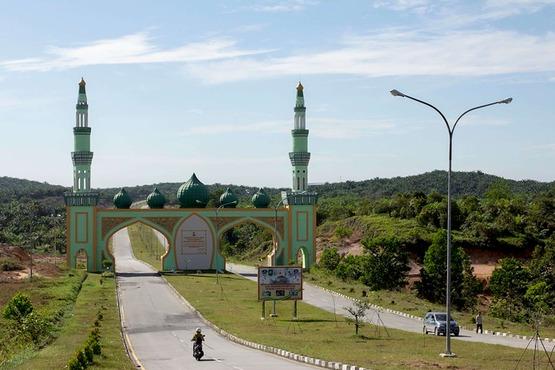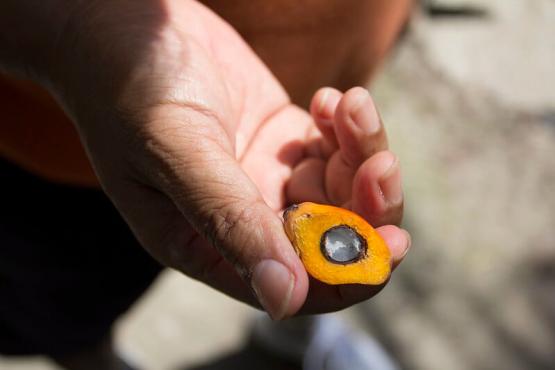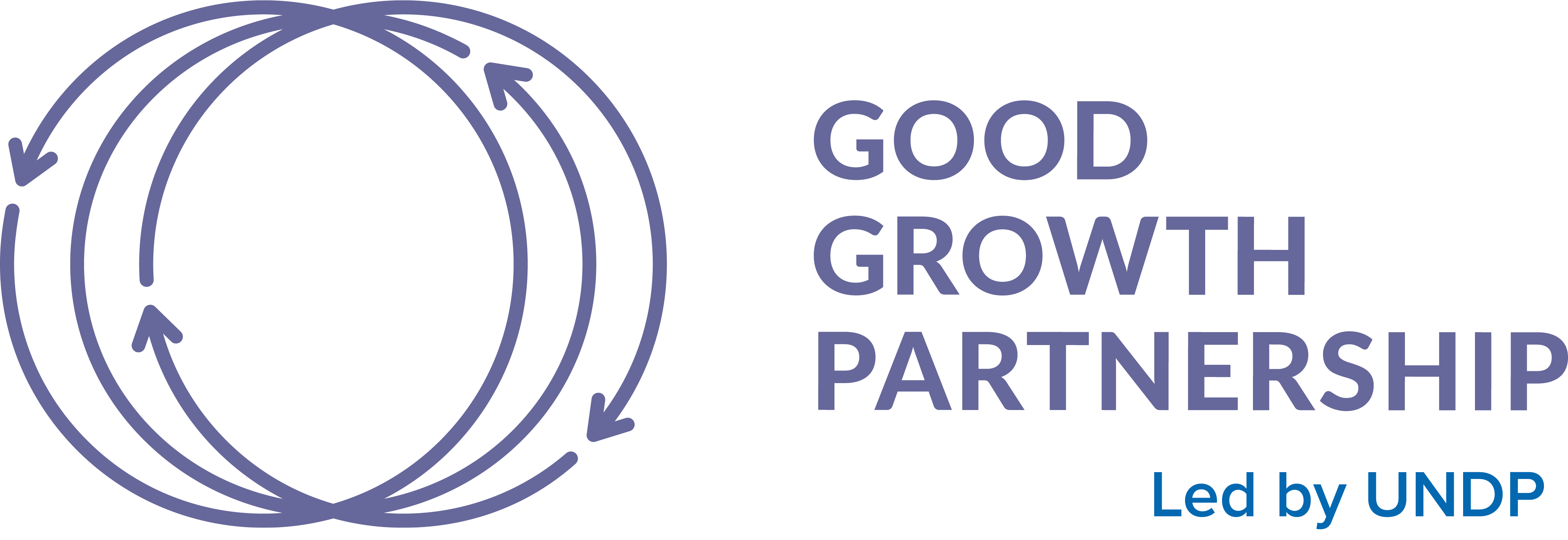Growing demand for palm oil, which is used in food, biofuels, soap and many other products, is placing unprecedented pressure on tropical ecosystems.
Sustainability Opportunities

Oil palm fruit in Indonesia. By Flore de Preneuf/World Bank
Palm oil, a major cause of deforestation, is used in a wide range of packaged products in supermarkets, including in ready meals, baked goods, chocolate, cosmetics and shampoo. It is also used as animal feed and as a biofuel in many parts of the world.
The consequences of unsustainable agricultural practices lead to deforestation and land degradation, diminishing soil nutrients, erosion, leading to poor management of water resources, resistance to pesticides and loss of biodiversity.
Palm can be profitable even in peat or sandy soils, conditions in which other crops often cannot grow. On the downside, it also leads to the loss of vast tracts of tropical forests as growers expand their footprint. Peat must be drained before planting palm, a practice that increases planet-warming greenhouse gas emissions.
Fire is typically used to clear and prepare land to plant oil palm, also leading to pollution. Smoke often covers large regions, exacerbating global warming and harming human and animal health.
Yet, economic benefits of oil palm production for communities who live in forests are often significant, particularly in locations where few alternatives exist.
Our Strategy
To meet projected demand from a growing population and increasing wealth, unsustainable practices must be supplanted with strategic management to avoid further degradation, pollution and negative consequences for rural livelihoods and the environment.
Overall, an integrated approach, which combines market solutions with regulatory tools, government policies and civil society will overcome many of the challenges posed by fragmentation at international, national and local levels.
For 30 years, roundtables established to shape sustainable palm oil supply chains led by environmental organizations and the private sector have led to voluntary certifications and standards intended to improve land management practices with varying degrees of success.
Smallholder farmers have not been able to fully avail themselves of the benefits offered by these initiatives due to a lack of financial resources to apply the standards cost effectively. Prices have been artificially affected by various factors, including subsidies.

Gateway to palm oil plantation in Indonesia. By Flore de Preneuf/World Bank
Country Project Highlights

Oil palm fruit and kernel. By Flore de Preneuf/World Bank
FOLUR works on palm oil projects in the following countries:
- Guatemala
- Guinea
- Indonesia
- Liberia
- Malaysia
- Nigeria
- Papua New Guinea
- Peru







